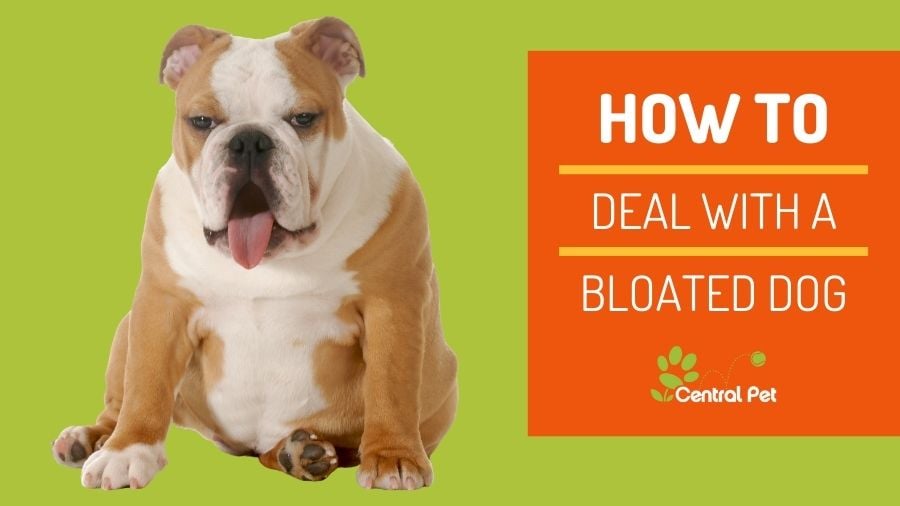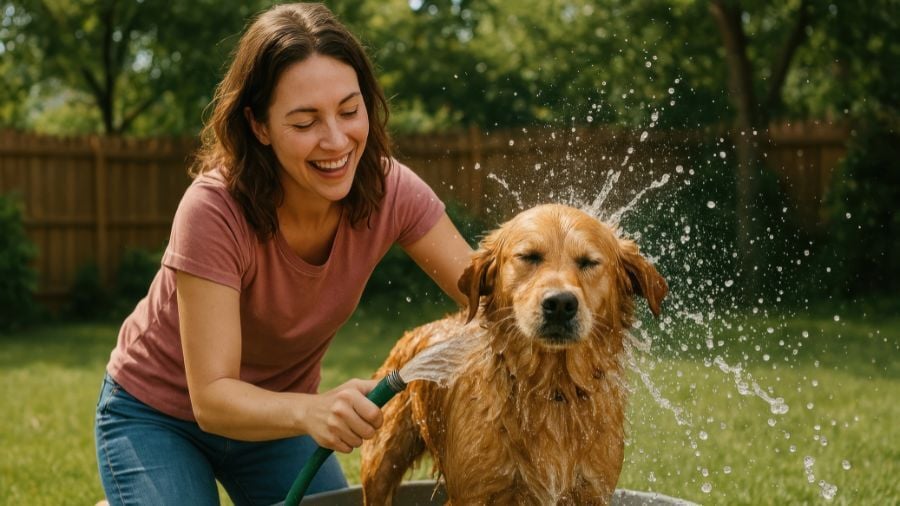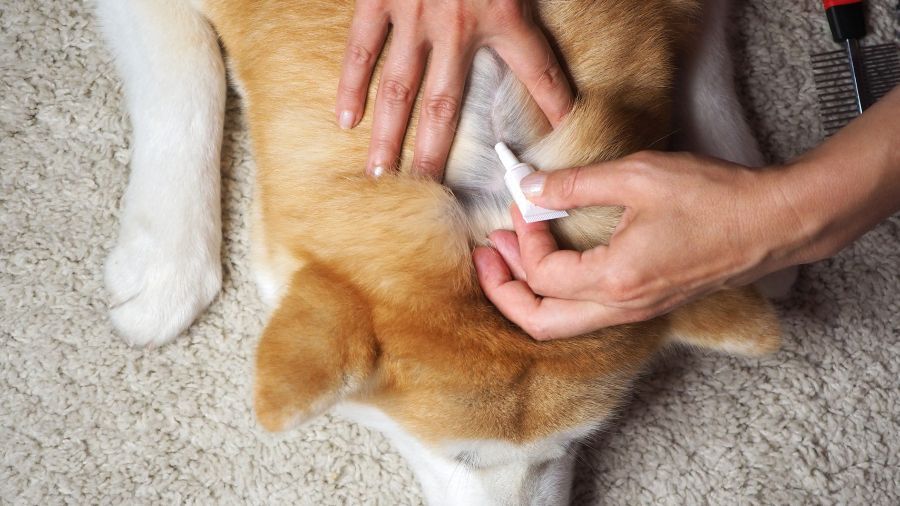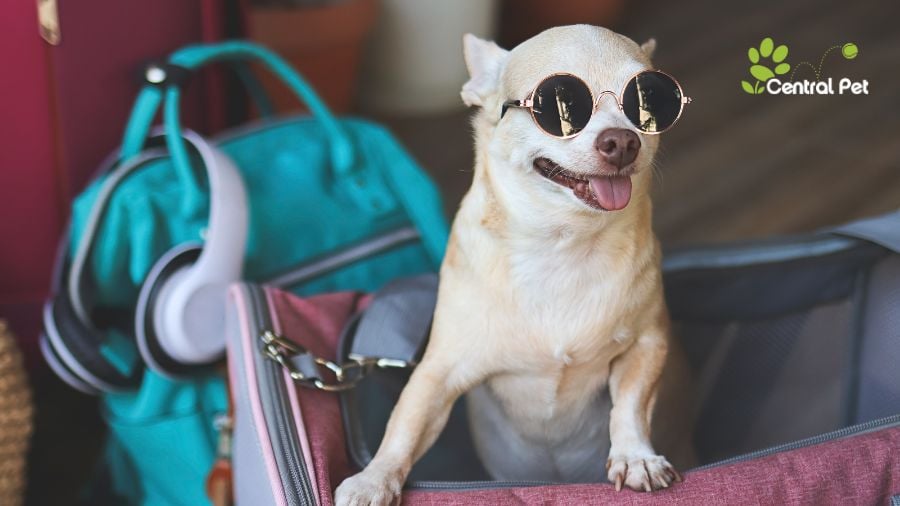Dogs can be a rambunctious group, no matter the breed, and they come with a natural curiosity that brings a lot of fun and excitement. However, this exact behavior can also lead to some scary situations if they use their enthusiasm while eating. Sometimes it can be hard to match a dog's energy and even harder to keep an eye on them throughout every hour of the day.
The dog's breed and size can have a factor in the frequency and severity of bloating, with deep-chested and large-breed dogs such as Great Danes, German Shepards, and Labradors experiencing bloat more often than others.
If you don't monitor what your pet eats, they could experience canine bloat. Also known as dog bloat, or gastric dilatation-volvulus (GDV) complex, this condition can be pretty uncomfortable for the animal. In this article, you'll learn everything you need to know about dog bloat and what you can do to avoid it and keep your furry friend healthy and happy.
What is Canine Bloat?
Pets tend to get pretty excited when it's time for food, and many of them will gulp it right down. When a dog overeats or eats too quickly, their stomach can also fill with air which can make it really uncomfortable for the dog – just like humans experience bloat or gas if they eat too quickly.
When your dog has bloat from eating, it’s usually minor and will pass as the food is digested. However, bloat can be a serious issue if the dog doesn’t have a tendency to eat quickly. Other types of canine bloat can be caused by an intestinal blockage or a family history of bloating.
The Various Causes of Canine Bloat
There's a decent list of common causes for canine bloat that are linked to overeating or simply eating something that can make a dog ill. If your furry friend is one of these breeds or is prone to canine bloat, be sure to avoid the following situations.
Some of the most common causes for dogs to experience bloat are:
- Eating their food too quickly
- Only eating one time per day
- Eating from an elevated food bowl (a bowl on a platform)
- Overeating or drinking too much
- Heavy exercise or activity right after they eat
- Experiencing stress and anxiety
What are the Signs of a Bloated Dog?
It’s really something you’ll have to pay attention to after they eat to see if their behavior might be related to feeling bloated. Aside from noticing a sizable bulge on their sides or underbelly, here are a few symptoms you might notice in your dog if they are experiencing canine bloat:
- Lethargic behavior - more lying around and disinterest in playing than usual
- Excessive drooling
- Dry-vomiting/dry-heaving
- Either drinking a lot more water than usual or drinking less than usual
- Their abdomen is stiff or hard to the touch
Preventing Canine Bloat
There are things pet parents can do to help prevent canine bloat, such as:
- Monitoring and managing their food intake
- Making sure that you are serving the recommended amount of food
- Feeding your dog smaller meals throughout the day instead of one large meal
- Using a slow feeder dog bowl or “puzzle bowl” to slow down how fast your dog eats
- Keeping them entertained so they don’t overeat out of boredom
- Preventing stress and anxiety
If you are not sure how much food your dog should be eating, check with your vet. Other than slow-feeding bowls, there are more ways to slow down your pup’s eating speed. Consider watering down their food or even putting their food in a “treat toy.” These simple changes can be the difference between a bloated dog and a happy dog.
How to Treat Canine Bloat?
If you can’t help them slow down their eating, or if the other suggestions above don’t seem to work, you may need to talk to your vet. Seek medical attention immediately if your dog shows signs of dog bloat for more than a day or so, as it can be a life or death situation. They can check to see if there is another problem causing your dog to feel bloated. Canine bloat can be easily confused with other conditions.
One of the first solutions a veterinarian might try is to induce vomiting to help free up space in the stomach, and they may administer fluids to keep them hydrated throughout the process. Depending on the severity of the pup's discomfort, it may be necessary to keep them at the vet for a few days to monitor their progress closely. There are multiple solutions to help your pet in this scenario, and it starts with a trusted veterinarian.
Check out this blog: Tips for Choosing a Vet
Stop Anxiety Before it Happens
One final, important note: it's common for a pup to get bored when left home alone all day, which can lead to increased curiosity and anxiety. This change in demeanor could cause them to eat more quickly than they should when mealtime comes around - or even snoop around the house and get into something that they shouldn’t be eating, which could lead to an intestinal blockage and severe bloating. You might want to consider our doggy daycare services, where exercise, play, and interactions with other dogs can reduce your dog's stress or anxiety.
During daycare and boarding for pets at Central Pet in Tucson, Arizona, we pay close attention to your dog’s wellness, safety, and health. We are dedicated to ensuring your furball stays safe and happy during your busy schedule.





